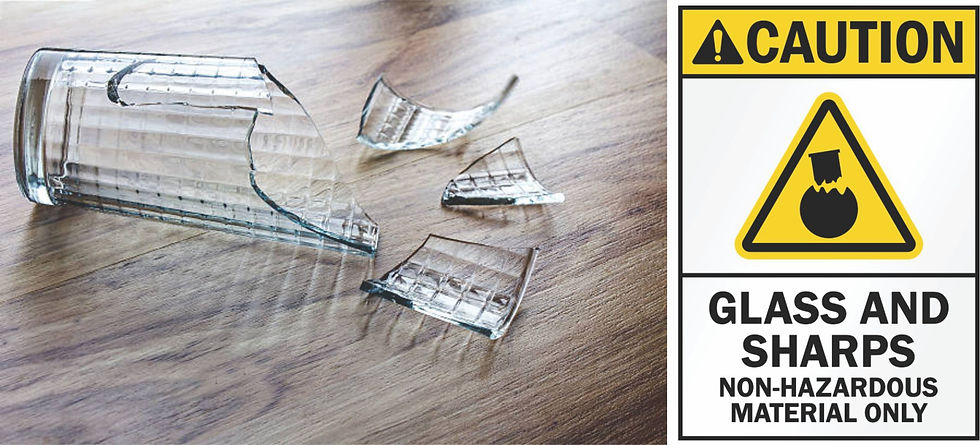How to safely dispose hazardous waste
- Sultan Kiani

- Oct 28, 2025
- 3 min read
//
Sultan Kiani
Waste generation is a major global issue threatening the environment and public health.

While we can reduce the overall volume of waste by following the principles of Reduce, Reuse, and Recycle, it is impossible to eliminate waste generation entirely. That is why the safe disposal of waste becomes crucial to minimize its harmful impacts.
Although large industries and commercial enterprises generate the greatest volume of waste, individual households and small businesses also generate many types of dangerous waste. It is, therefore, essential for everyone to understand and apply proper disposal methods for hazardous materials. Below are some common hazardous waste types and how to dispose of them responsibly:
Sharp-Edged Scrap
From broken glass and rusty nails to used blades and needles, sharp scrap refers to any waste material with a pointed or cutting edge. Even if this type of waste is not chemically or biologically hazardous, it can cause severe physical injuries to humans and animals.

Improperly discarded sharp waste can harm sanitation workers, rag pickers, pets, or even wildlife. To prevent such injuries, follow these safety measures:
Handle broken glass or other sharp waste with care. Use puncture-proof gloves or tools to avoid direct contact.
Place smaller sharp items in a sealed container (such as a plastic bottle or metal tin with a tight lid) before disposing of them in the trash.
Do not mix sharp objects with household waste. This endangers people and animals that might come into contact with them.
Biomedical Waste
Items such as bandages, gloves, diapers, or syringes that have come into contact with bodily fluids like blood or urine are considered biomedical waste. This category is especially dangerous due to its potential to spread infection.
Whether managing a clinic or caring for a patient at home, always follow strict disposal measures:
Wear gloves, a face mask, and eye protection while handling such waste.
Be extremely careful with used syringes. Standard gloves will not protect against needle pricks.
Do not mix biomedical waste with household garbage.
Identify any medical waste disposal facility or incinerator in your area.
If no facility is available, store the waste in a leak-proof container (such as a plastic bottle) before final disposal.
As a last resort, dig a deep pit away from water sources, place the waste inside, and seal it with cement.
Always wash your hands thoroughly with antibacterial soap and water after handling biomedical materials.
Electronics (E-Waste)
You may have seen the “Do not trash” symbol on many electronics. This is not only a recycling symbol but also a warning that these items can cause fires or environmental damage.
Electronics such as mobile phones, tablets, and laptops contain lithium-ion batteries that can explode if exposed to heat or pressure. These devices must not be thrown into ordinary trash bins.
Take all e-waste to a certified recycling facility.
Encourage your local authorities and tech companies to implement e-waste collection programs.
Avoid storing damaged electronics at home. Recycle or discard them properly and promptly.
Hazardous Chemicals
Expired household chemicals such as cleaning agents, lubricants, paints, and pesticides must be discarded with caution. If these substances seep into the soil, they can contaminate groundwater and damage ecosystems.
For safe disposal of chemicals:

Dilute expired cleaning agents with water before flushing them—only if recommended on the label.
Never pour paint, oil, or toxic fluids into drains, water bodies, or directly on the ground.
Use the “Absorb and Seal” method: absorb chemical waste in sand or soil, then seal in a plastic bag before disposing of it.
Avoid crushing or dismantling items like smoke detectors or old film cameras, which may contain radioactive materials or heavy metals.
Need Help?
For further guidance on hazardous waste disposal:
Punjab: Call 1139
Islamabad: Call 1334
Let us all contribute to a safer and cleaner Pakistan by handling hazardous waste responsibly. Together, we can protect our communities, sanitation workers, and the environment from harm.




Comments